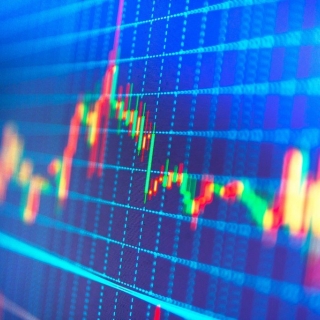


Asian stocks fell and U.S. equity index futures slid as the trade conflict showed no sign of abating, with Nvidia Corp. saying the U.S. was imposing new restrictions on some chip exports to China.
Contracts for the Nasdaq 100 fell more than 1.4% in early trading and S&P 500 futures dropped 0.9% after Nvidia slumped in after-hours trading. Gold, a safe-haven asset that tends to rise when riskier assets decline, hit a fresh record on Wednesday. Bonds held onto the previous session's gains boosted by comments from a Treasury official about potential rule changes that could lower trading costs for banks. The dollar slipped.
Traders were again rattled by a flurry of tariff headlines, as U.S. President Donald Trump also launched an investigation into the need for levies on critical minerals. Tariff policy changes have roiled global markets this month as investors struggled to take long positions amid unpredictable announcements from Washington.
"We advise investors to avoid making hard and fast assumptions about how tariff developments will ultimately impact the economy and corporate earnings," said Anthony Saglimbene at Ameriprise. "Instead, we suggest investors prepare for a range of possible medium-term outcomes that include slow to positive economic and earnings growth, and slow to negative growth scenarios."
In aftermarket trading, Nvidia extended its decline to more than 5% after saying the U.S. government will begin requiring licenses to export the company's H20 chips to China, an increase in restrictions the company has publicly opposed. The company warned that it would report about $5.5 billion in charges during the fiscal first quarter from "inventory, purchase commitments and related reserves" related to the H20 line.
The European Union and the U.S. struggled to bridge trade differences this week as White House officials said most U.S. tariffs imposed on the bloc would not be removed. Meanwhile, Trump urged China to contact him to begin negotiations after the country ordered its airlines not to accept further deliveries of Boeing Co. jets.
The Trump administration may use tariff negotiations to try to pressure U.S. trading partners to curb transactions with China, the Wall Street Journal reported, citing people familiar with the discussions. Chinese equities are also vulnerable ahead of a fresh batch of economic data that is expected to reinforce concerns about an uneven recovery, with a gauge of U.S.-listed Chinese stocks falling for the first time in three sessions. First-quarter GDP due Wednesday is expected to show slowing momentum, even before the full impact of tariffs is felt, while retail sales are likely to show sluggish consumption.
"Growth data out of China due mid-session could shape the trading day," said Michael McCarthy, a strategist at Moomoo in Sydney. "Market risks on this release look lopsided, with a miss likely to trigger a sell-off, while better-than-expected growth is likely to be discounted due to the trade dispute."
High uncertainty over U.S. trade policy and surging financial market volatility have kept global investors on edge in recent weeks. Sentiment on the economic outlook is the most negative in three decades, but fund managers' pessimism is not fully reflected in their asset allocations, which could mean more losses for U.S. stocks, a Bank of America Corp. survey showed. Fund managers are "very pessimistic about macro, not completely pessimistic about markets," strategists led by Michael Hartnett wrote in a note. "Peak fears" have not yet been reflected in cash allocations, they added. Investors are also bracing for comments by Federal Reserve Chairman Jerome Powell on the economy later Wednesday.
Source: Bloomberg
Tested EN...
Asian stock markets weakened for the second consecutive day, indicating that the initial rally that had been "speedy" at the start of the year is starting to lose steam. At the same time, US governmen...
US stocks were mixed on Wednesday as investors weighed uneven economic data against expectations for eventual Federal Reserve easing, with the S&P 500 easing 0.2% and the Dow Jones sliding 0.8% fr...
European stocks were in mixed territory on Wednesday morning, as regional market jitters grow over U.S. President Donald Trump's threat to annex Greenland. The pan-European Stoxx 600 was little chang...
Asian stock markets weakened slightly on Wednesday after posting their best start to the year in history. The decline was driven by a decline in Japanese stocks amid escalating tensions with China. Th...
Oil prices stabilized on Thursday (February 12th), as the market reassigned a risk premium to US-Iran tensions despite US inventory data showing swelling domestic supplies. This movement confirms one thing: geopolitical headlines are still more...
Gold prices weakened slightly on Thursday (February 12th), as more solid US employment data reduced market confidence in an imminent Federal Reserve interest rate cut. The strong employment data prompted market participants to shift expectations of...
The Hang Seng Index reversed its downward trend in Hong Kong on Thursday (February 12th), weakening by around 0.9% to around 27,000 after a strong session earlier. This decline halted the momentum of the short term rally, as investors began to...